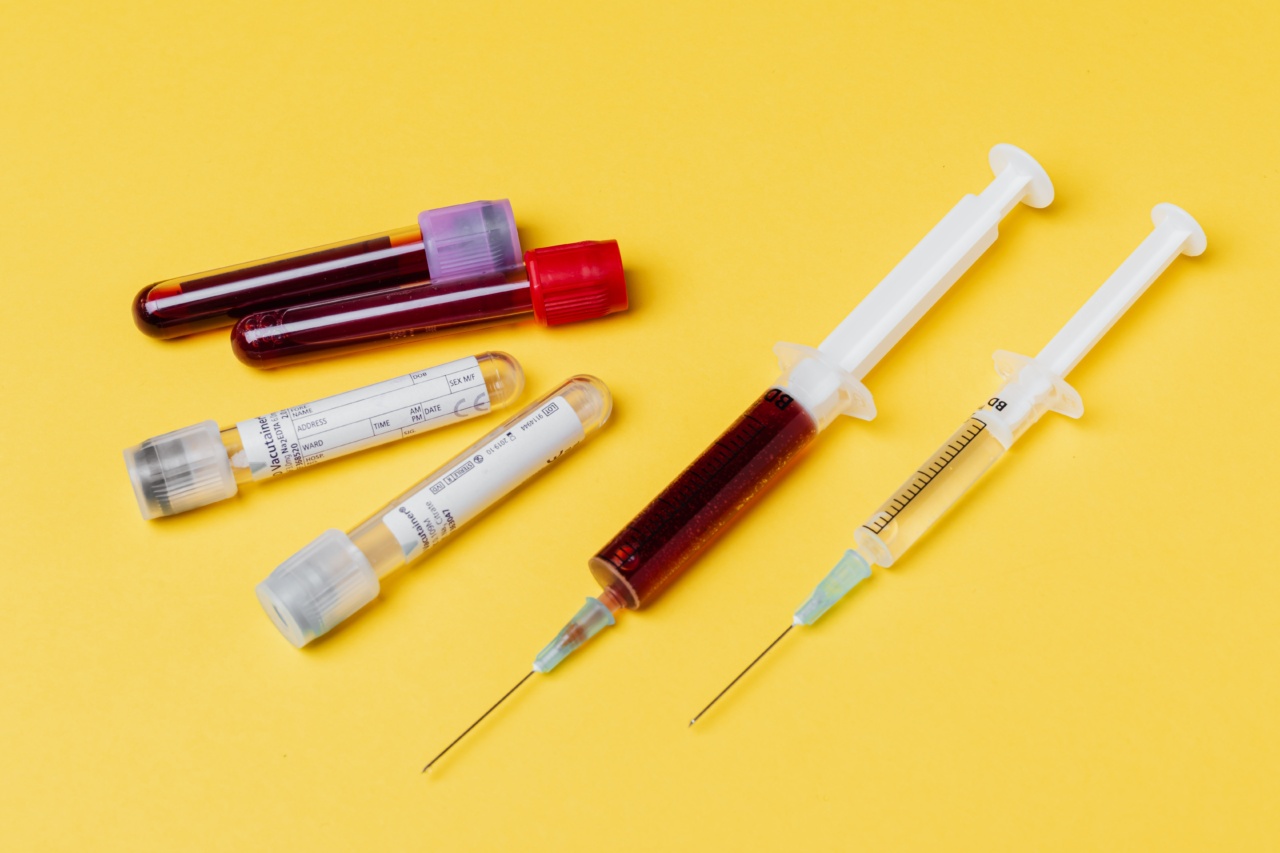High blood pressure, also known as hypertension, affects millions of people worldwide. It is a chronic medical condition that requires careful management to reduce the risk of heart disease, stroke, and other serious health complications.
While medication is commonly prescribed to control blood pressure, there are also several lifestyle changes and natural remedies that can help manage blood pressure without the need for medication. In this article, we will explore various strategies and techniques for managing blood pressure naturally.
1. Regular Exercise
Engaging in regular physical activity is one of the most effective ways to manage blood pressure naturally. Exercise helps strengthen the heart, improve blood circulation, and lower blood pressure levels.
Aim for at least 150 minutes of moderate-intensity aerobic activity or 75 minutes of vigorous aerobic activity per week. Some great exercise options include brisk walking, cycling, swimming, and dancing.
2. Healthy Diet
Dietary choices play a crucial role in managing blood pressure. Follow these dietary recommendations:.
- Consume a well-balanced diet rich in fruits, vegetables, whole grains, lean proteins, and low-fat dairy products.
- Avoid processed foods, foods high in sodium, saturated fats, and added sugars.
- Include potassium-rich foods like bananas, oranges, spinach, and sweet potatoes in your diet.
- Reduce alcohol intake and quit smoking as they both contribute to high blood pressure.
3. Weight Management
Being overweight or obese is a significant risk factor for high blood pressure. Losing excess weight can significantly lower blood pressure levels.
Aim to achieve and maintain a healthy body weight by following a balanced diet and engaging in regular physical activity. Consult a healthcare professional or registered dietitian for personalized guidance.
4. Reduce Sodium Intake
Excessive sodium consumption can lead to fluid retention and increased blood pressure. Limit your sodium intake by:.
- Reading food labels and choosing low-sodium or sodium-free products.
- Avoiding adding salt to your meals during cooking or at the table.
- Opting for herbs, spices, and salt-free seasoning blends to add flavor to your dishes.
- Gradually reducing your sodium intake to allow your taste buds to adjust.
5. Stress Reduction
Chronic stress can contribute to high blood pressure. Implement stress reduction techniques to manage blood pressure naturally:.
- Practice relaxation techniques such as deep breathing exercises, meditation, or yoga.
- Engage in activities you enjoy to distract yourself from stressful situations.
- Spend time in nature or participate in hobbies that promote relaxation and inner peace.
- Ensure you get enough sleep as lack of sleep can elevate blood pressure levels.
6. Limit Caffeine
While moderate caffeine consumption doesn’t seem to have a significant impact on blood pressure, excessive amounts may increase it. Be mindful of your caffeine intake from beverages like coffee, tea, energy drinks, and sodas.
Limit consumption or switch to decaffeinated options if needed.
7. Increase Potassium Intake
Potassium is essential for maintaining healthy blood pressure levels as it helps balance the sodium effects in the body. Include potassium-rich foods in your diet, such as potatoes, bananas, avocados, oranges, spinach, and tomatoes.
If needed, talk to your doctor about supplements.
8. Quit Smoking
Smoking cigarettes elevates blood pressure temporarily and damages blood vessels, increasing the risk of heart disease and other complications.
Quitting smoking is one of the most significant steps towards lowering blood pressure and improving overall health. Seek support from healthcare professionals, support groups, or quit-smoking programs if needed.
9. Limit Alcohol Consumption
Excessive alcohol intake can raise blood pressure and contribute to other health issues. Limit your alcohol consumption to moderate levels, which means up to one drink per day for women and up to two drinks per day for men.
If you struggle with alcohol addiction, seek help from professionals.
10. Regular Monitoring and Check-ups
Track your blood pressure regularly to understand how your lifestyle changes are affecting your levels. Use a home blood pressure monitor and keep a record of your readings.
Additionally, schedule regular check-ups with your healthcare provider to monitor your overall health and discuss any necessary adjustments to your management plan.
Conclusion
Managing blood pressure without medication is possible through adopting a healthy lifestyle, making dietary changes, and incorporating stress reduction techniques.
Regular exercise, a nutritious diet, weight management, and reducing sodium intake are key factors in natural blood pressure management. With dedication and persistence in implementing these strategies, individuals can effectively lower and maintain healthy blood pressure levels without relying solely on medication.































